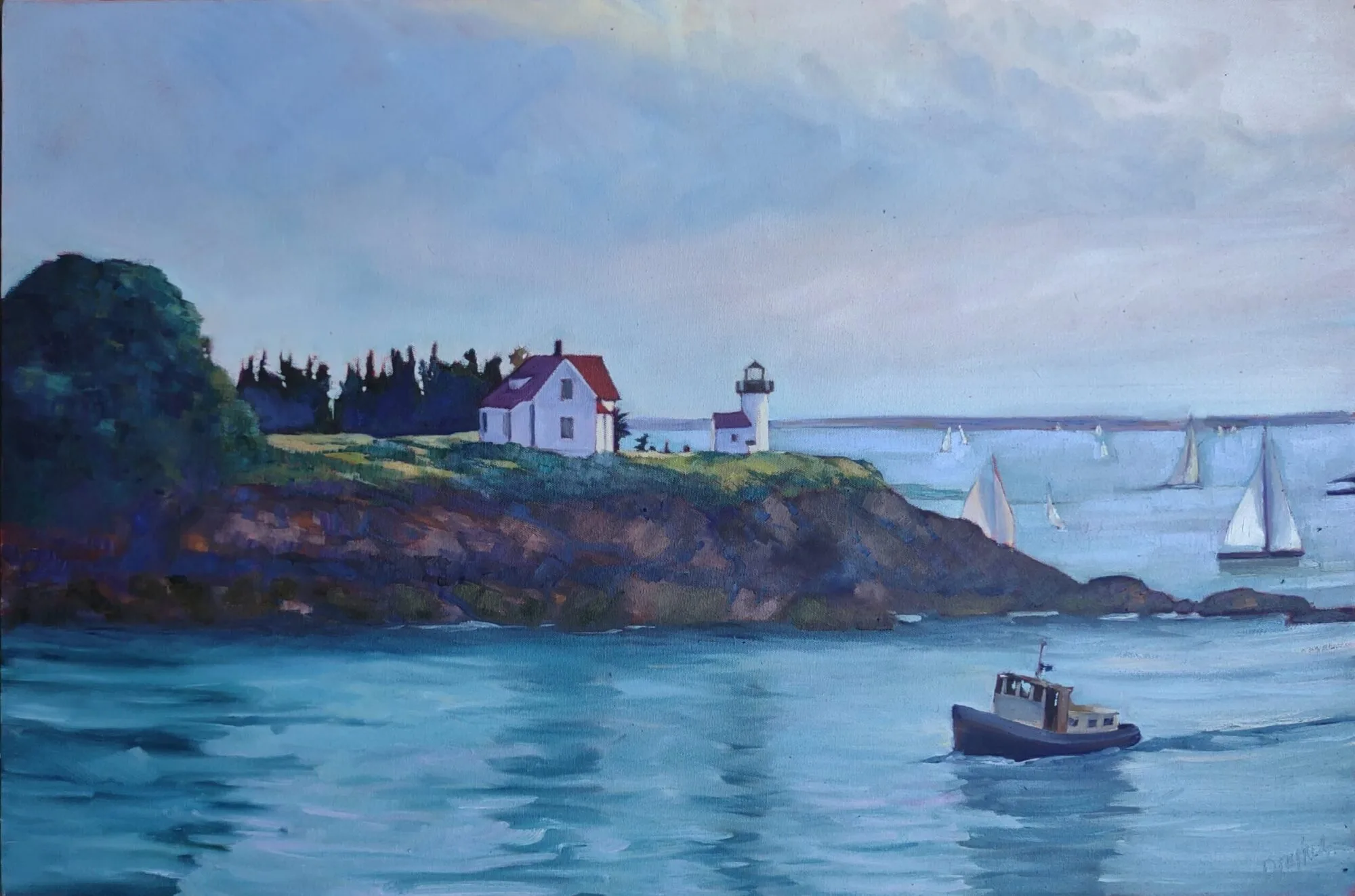This Sunday, I was doodling in church when a painting dropped full-blown into my head. That isn’t common, but is always exciting. And in this case, it was fortuitous since I just finished several weeks of flailing around on the previous piece.
Where does a fully-realized idea spring from? First, a thought: in this case, a dilemma that has bedeviled me for almost a year. Then, visual input that is usually jumbling around in one’s cranium solidifies into a concept. In this case:
- An email sent by my pal Garrett about how big wolves really are;
- A painting I did several years ago as an exercise for my class on how to paint the traps between trees;
- A photo taken by my friend Jamie of a waterfalls near her house;
- William Holman Hunt’s “Our English Coasts (Strayed Sheep),” which set the light tone for the uplands.
When I’m painting observationally, I follow the traditional rules of alla prima painting: dark before light, big masses divided into small masses, fat over lean. When I’m painting from an interior vision, I paint indirectly, starting with a color map, and then modulating with opaque paints.
BTW, this is my current easel setup—electronic reference to the left, paper reference to the left.

